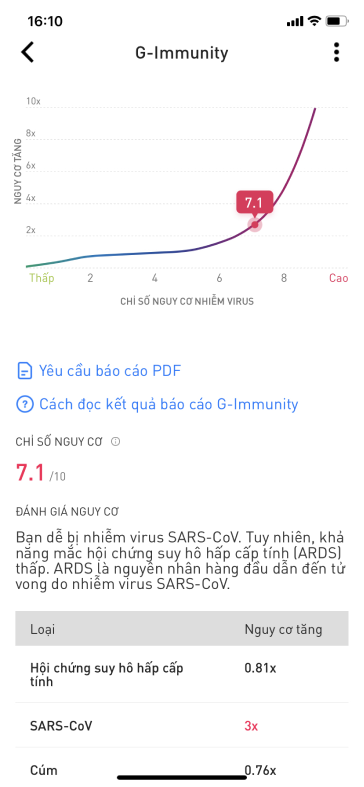How our genes respond to the foods we eat?

What should we eat? Answers abound in the media, all of which rely on their interpretation of recent medical literature to come up with recommendations for the healthiest diet. But what if you could answer this question at a molecular level -- what if you could find out how our genes respond to the foods we eat, and what this does to the cellular processes that make us healthy -- or not?
How our genes respond to the foods we eat
How does food affect gene expression? NTNU researchers Ingerid Arbo and Hans-Richard Brattbakk have fed slightly overweight people different diets, and studied the effect of this on gene expression.
This study has found that a diet with 65% carbohydrates, causes a number of classes of genes to work overtime. This affects not only the genes that cause inflammation in the body, but also genes associated with development of cardiovascular disease, some cancers, dementia, and type 2 diabetes -- all the major lifestyle-related diseases.
Moreover, "both low-carb and high-carb diets are wrong," says Berit Johansen, a professor of biology at NTNU. "But a low-carb diet is closer to the right diet. A healthy diet shouldn't be made up of more than one-third carbohydrates (up to 40 percent of calories) in each meal, otherwise we stimulate our genes to initiate the activity that creates inflammation in the body." This is not the kind of inflammation that you would experience as pain or an illness, but instead it is as if you are battling a chronic light flu-like condition. Your skin is slightly redder, your body stores more water, you feel warmer, and you're not on top mentally. Scientists call this metabolic inflammation.
In addition, some clusters of genes that stood out as overactive are linked to the most common lifestyle diseases. Genes that are involved in type 2 diabetes, cardiovascular disease, Alzheimer's disease and some forms of cancer respond to diet, and are up-regulated, or activated, by a carbohydrate-rich diet. It can be said that diet is the key to controlling our personal genetic susceptibility to disease.
In choosing what we eat, we choose whether we will provide our genes the weapons that cause disease. The immune system operates as if it is the body's surveillance authority and police. When we consume too many carbohydrates and the body is triggered to react, the immune system mobilizes its strength, as if the body were being invaded by bacteria or viruses. Furthermore, the fat/protein trap is just as bad as the carbohydrate trap. Eating several small and medium-sized meals throughout the day is important. Don't skip breakfast and don't skip dinner. One-third of every meal should be carbohydrates, one-third protein and one-third fat. That's the recipe for keeping inflammatory and other disease-enhancing genes in check.
Reference: https://www.sciencedaily.com/releases/2011/09/110919073845.htm
























